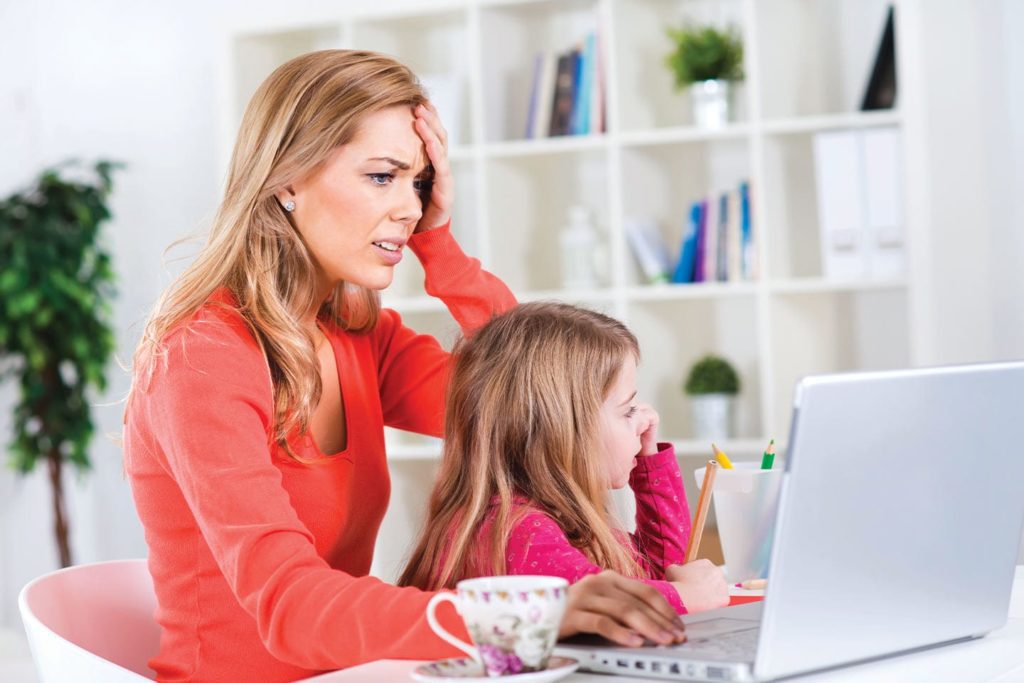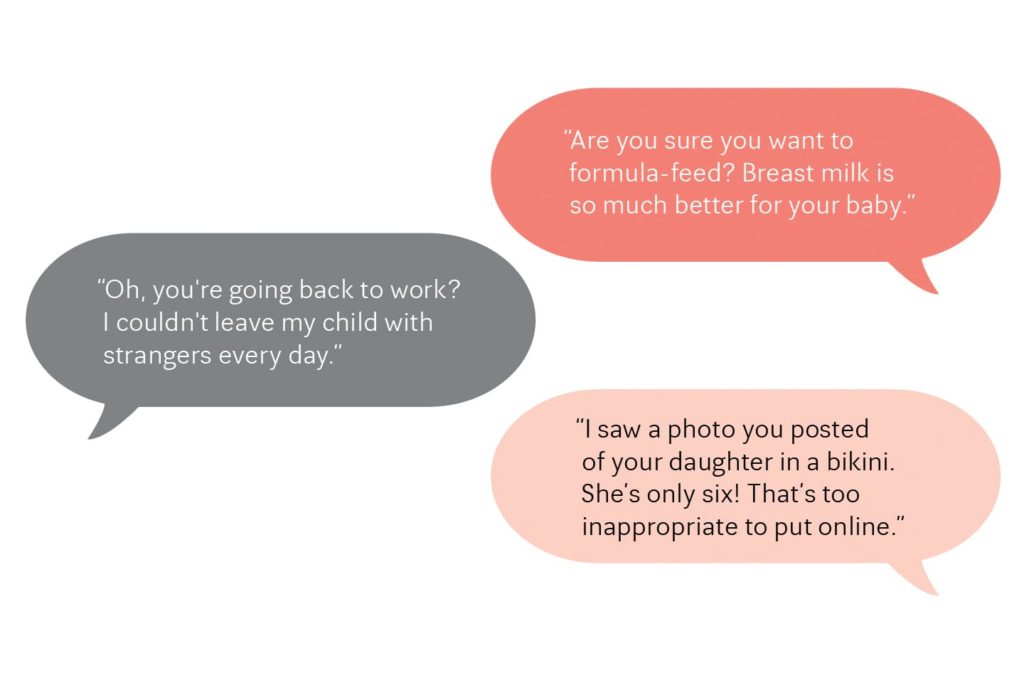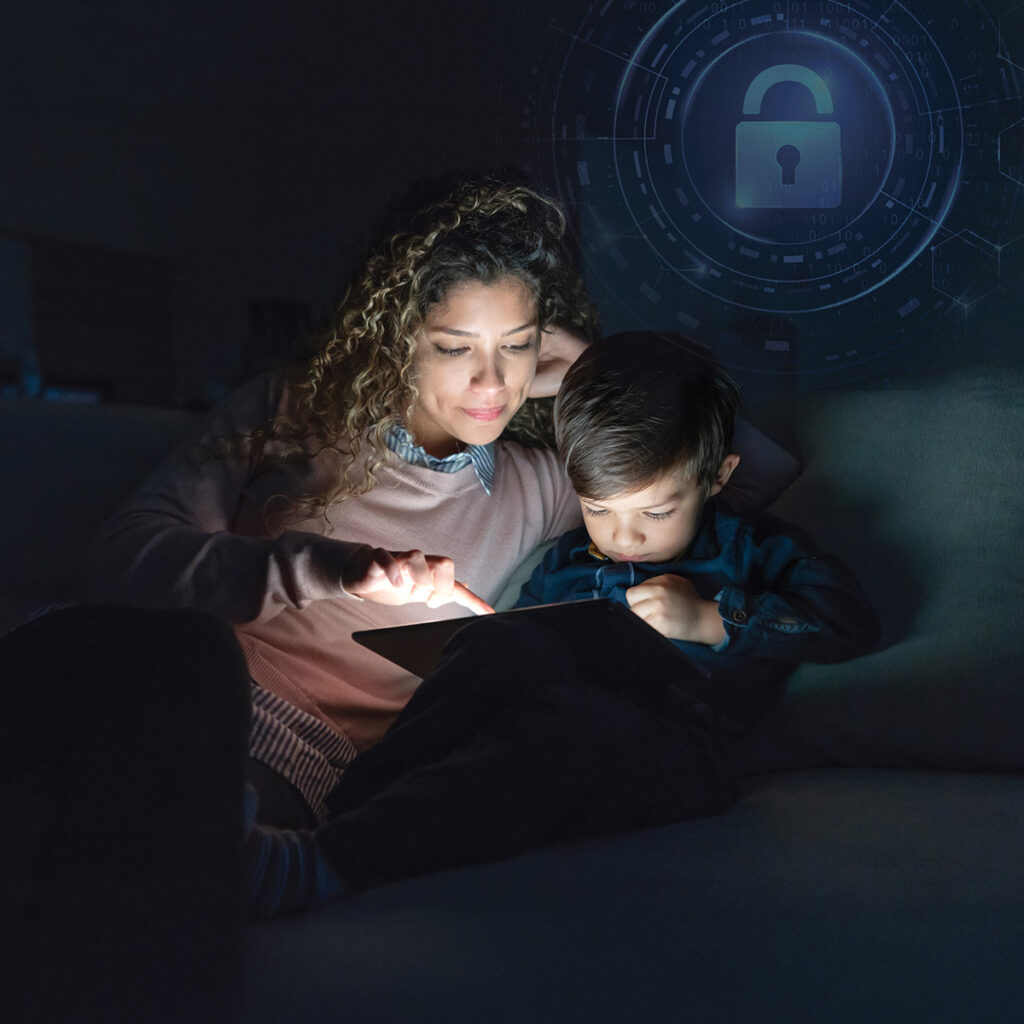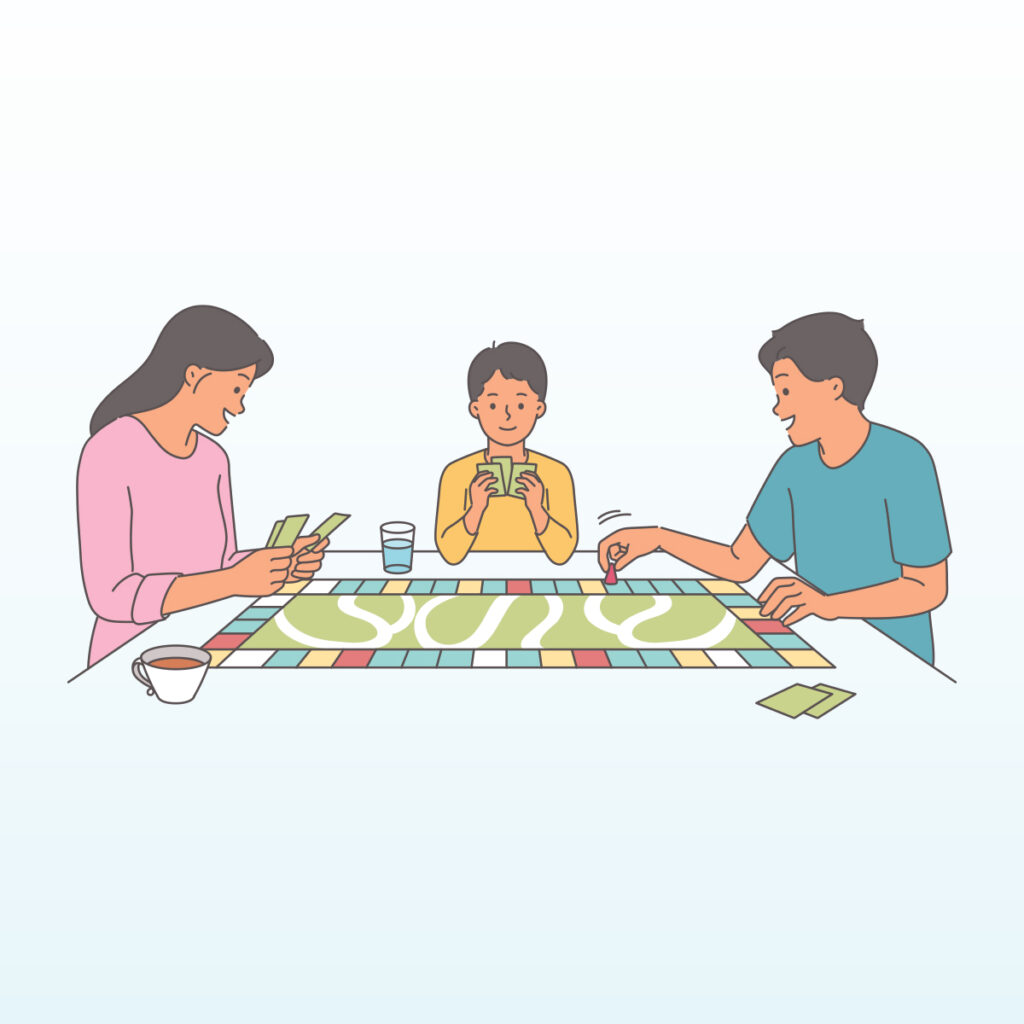Shame & Peer Pressure During Motherhood
If the above comments sound all-too familiar, then you’ve experienced – or know of someone who has experienced – mom-shaming. These criticisms, often passed off as “advice” or “encouragement” by loved ones, are directed at mothers for their parenting choices. Say the wrong thing, do the wrong thing, or post the wrong thing to social media, and you’re opening yourself up to a sharp rebuke – or at the very least, a subtle jab.
Being the victim of mom-shaming is an emotional experience; it can be embarrassing, frustrating, confusing, or all of the above. Here, psychotherapist Ashley Liston-Avnaim offers her insight into these hurtful encounters, and what you can do to move forward.
In the year 2019, motherhood comes with a unique set of challenges. “Women in our culture are expected to look perfect, parent successfully, work outside the home, and be achieving personal and professional goals, all while functioning as the relational glue that holds a family together,” Liston-Avnaim says. “These expectations are unrealistic and can leave mothers with a perpetual sense of guilt about how they aren’t measuring up.” What’s more, these expectations often make mothers the target of excessive criticism (mom-shaming), whether from family members, fellow moms, or even strangers.

Common topics of mom-shaming range from formula versus breastfeeding and cloth versus disposable diapers to decisions on screen time and approaches to discipline. “As a new mom, I was even told that I didn’t have enough toys and gadgets for my baby – which goes to show just how minuscule and far-reaching the criticisms can be,” Liston-Avnaim shares. While the underlying motive behind the scrutiny isn’t always cut and dry, Liston-Avnaim believes that many mom-shamers are riddled with their own insecurities regarding their parenting choices. For them, mom-shaming is a means to gain self-affirmation. Others may sincerely be trying to help, although, Liston-Avnaim says, “The shaming simply isn’t productive.”
While you can’t always silence the mom-shamers, you can choose how you’ll respond to negative comments. When criticized online, the safest response may be to not respond at all. Instead, attempt to create a community of support and a nonjudgmental environment across your social media platforms.

Shame is rarely an effective way of motivating people to be and do better, and it actually has long-term consequences to the contrary … It might be helpful to accept that we aren’t always going to agree about parenting choices, and we should allow that diversity to flourish without increasing divisiveness.”
Ashley Liston-Avnaim
“Choose to only follow people or accounts that inspire you and exude positivity,” Liston-Avnaim suggests. “Similarly, feel free to only allow people into your online world who will promote the same.” Critiques in-person are different, and you’ll need to decide whether it’s worth it to be assertive or clear about your feelings. Liston-Avnaim adds, “I recommend that moms find some simple one-liners that make it known that mom-shaming is hurtful and unnecessary. For example: ‘We’re all just doing our best here!’”
Additionally, sharing your experiences with a close support system can help you move forward and create a healthier outlook. “The hope would be that reaching out to your community of people and being honest about the challenges you’re facing would engender empathy and ‘me too’ moments, which you can use to build resilience for future hurtful encounters,” Liston-Avnaim says. At the end of the day, remind yourself that the offhand comment or unsolicited lecture doesn’t define who you are as a mother. No one knows your child better than you, and you’re doing the best you can with what you have.

Ashley Liston-Avnaim, MA, LPC-MHSP
Licensed Psychotherapist at Embodied Psychotherapy and Trauma Resolution, Staff Clinician at Sewanee – The University of the South




